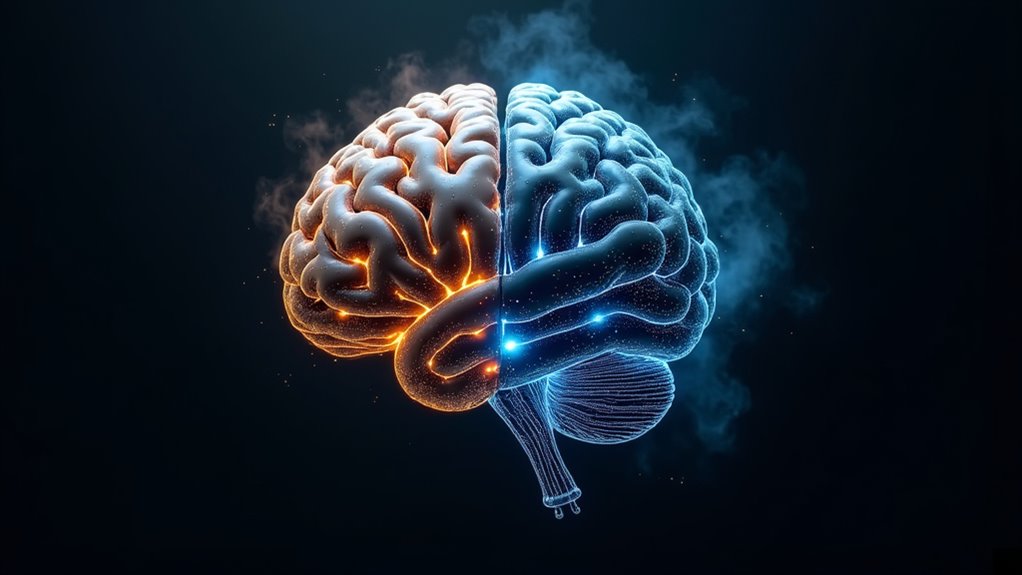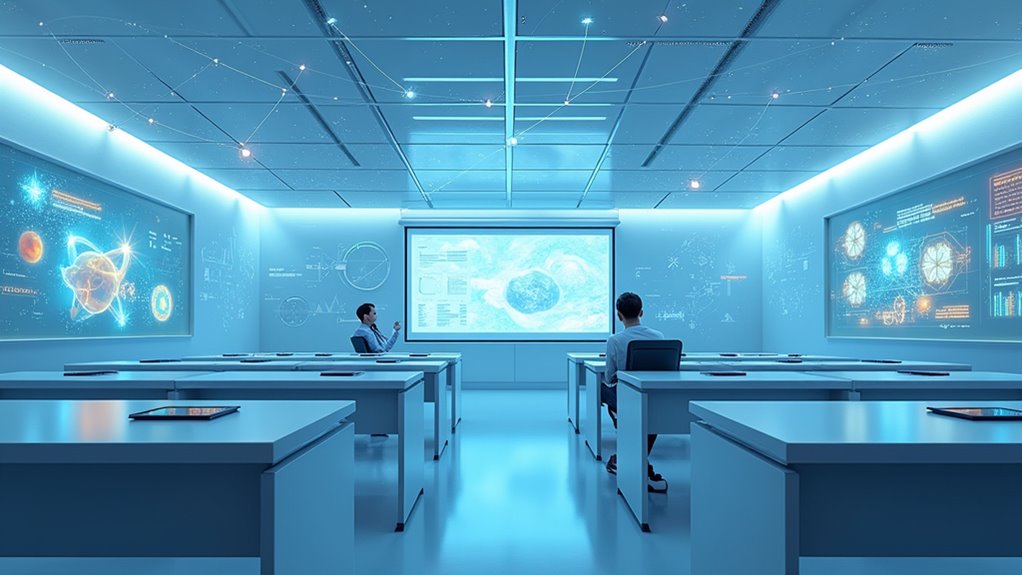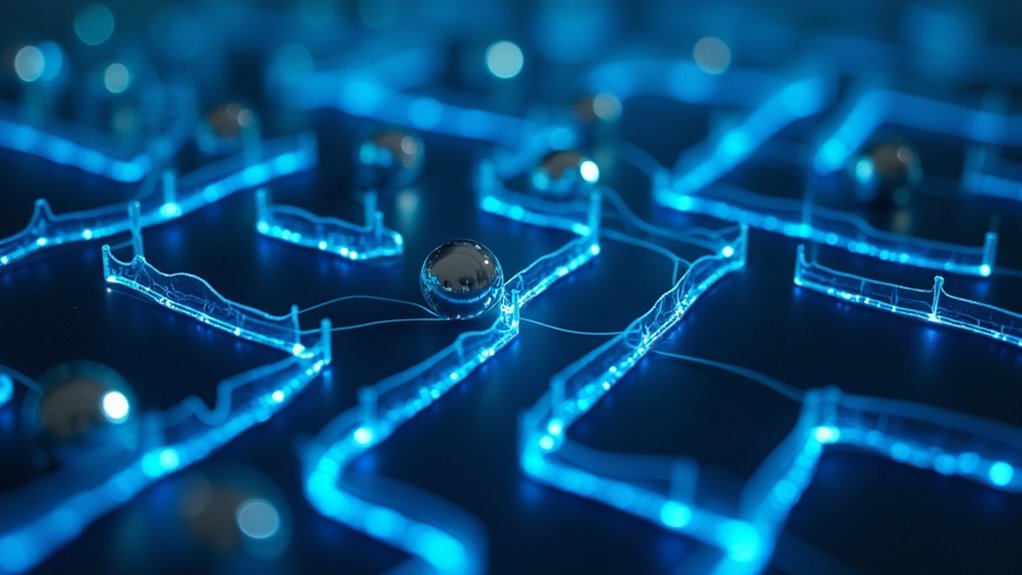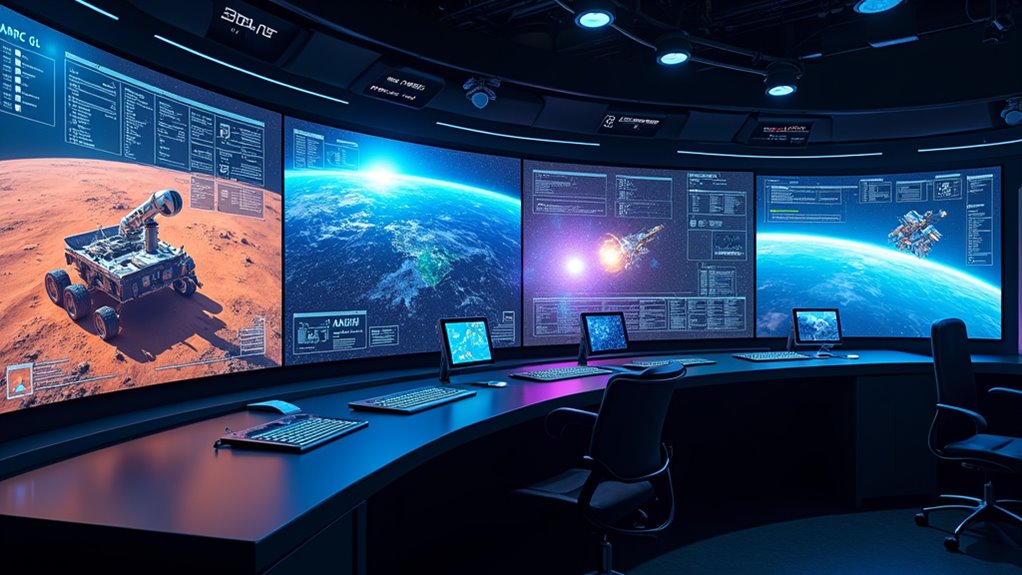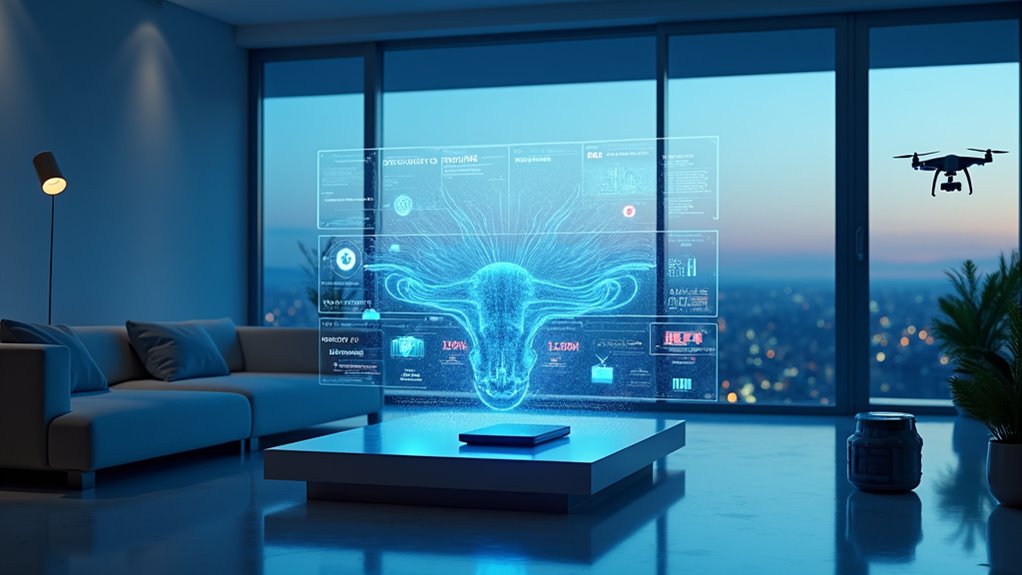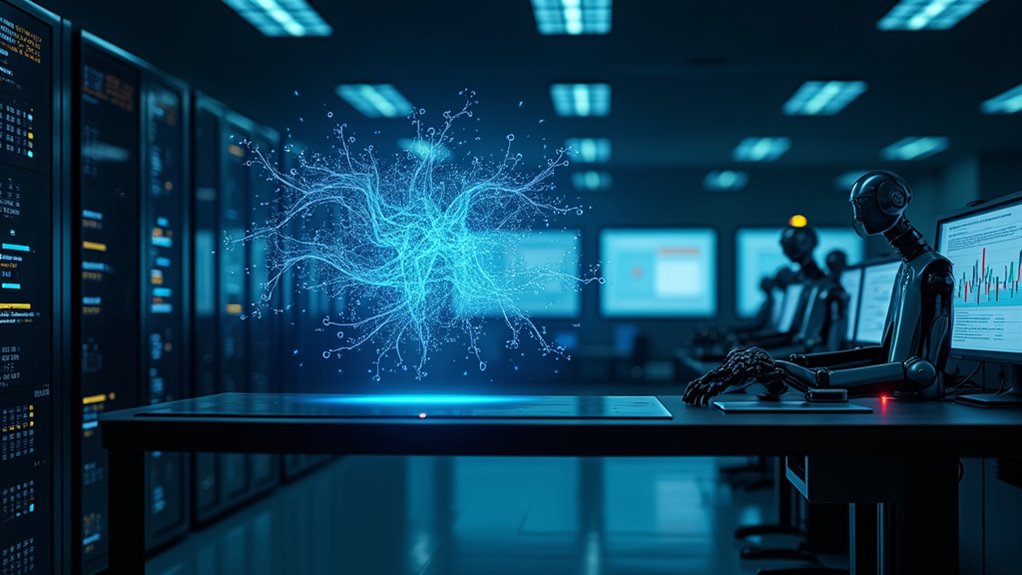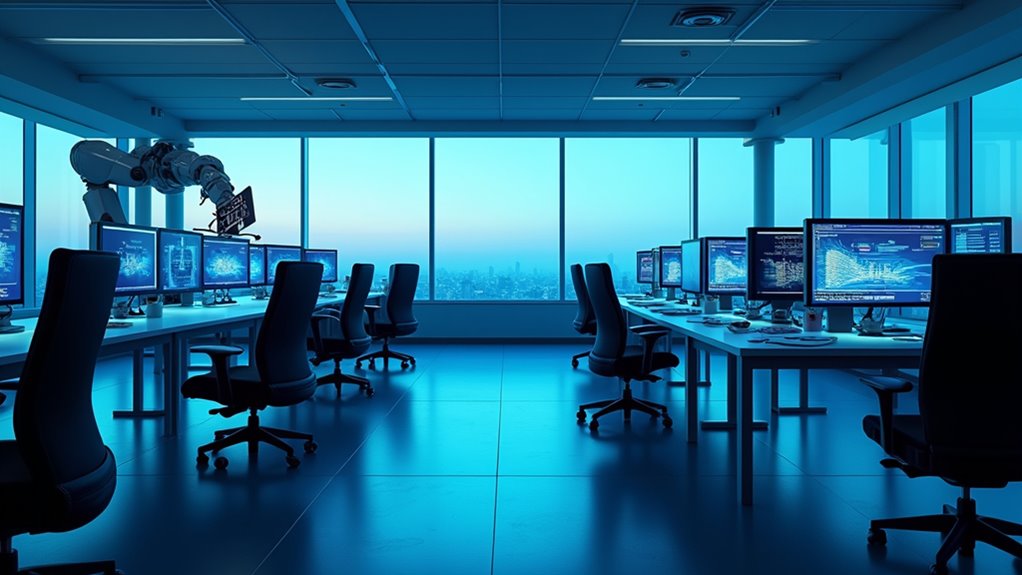The AI vs. human intelligence debate rages on, but here’s the reality check: AI can crush chess champions and crunch massive data, yet still struggles with basic jokes and empathy. Current AI systems are like savants – brilliant at specific tasks but lost in general situations. While machines excel at pattern recognition and tireless computation, they lack human creativity, emotional intelligence, and adaptability. The future points to collaboration rather than competition. There’s much more to this complex technological dance.
The age-old battle between human and artificial intelligence rages on, and it’s not as simple as silicon versus gray matter. While AI can crunch numbers faster than a room full of mathematicians hopped up on energy drinks, it still stumbles over basic tasks that toddlers master with ease.
Sure, AI can beat chess grandmasters and compose classical music, but ask it to understand a joke or show genuine empathy, and you’ll get the digital equivalent of a blank stare. When encountering errors, AI systems typically display 404 error messages instead of intuitive problem-solving.
Let’s get real about AI’s limitations. It’s like that one-trick pony at the circus – impressively good at specific tasks but utterly lost when asked to do anything else. AI needs massive amounts of data just to learn what humans pick up from a single experience. Today’s weak AI systems can only perform specialized tasks without true comprehension. Unlike the concept of transfer learning, current AI cannot easily apply knowledge from one domain to another.
While your average teenager can learn to ride a bike after a few tries (and bruises), an AI system needs thousands of examples just to grasp the basic concept. Talk about high maintenance.
The human brain remains an unmatched marvel of adaptability and creativity. People can write poetry, solve complex emotional problems, and navigate social situations with an intuitive understanding that AI can only simulate.
Humans make decisions based on a complex web of emotions, experiences, and ethical considerations. AI, meanwhile, just follows its programming, like a very sophisticated calculator with a fancy interface.
Current AI systems excel at pattern recognition and data processing but fall short in areas requiring genuine innovation or emotional intelligence. They can generate art by analyzing existing works, but they can’t truly understand the human experience that inspires creation.
They operate without fatigue, sure, but they also lack the spark of inspiration that comes from human experience and consciousness.
Will AI ever surpass human intelligence? The debate continues, but here’s the kicker: AI doesn’t need to surpass humans to be valuable.
The future likely lies in collaboration between human and artificial intelligence, each bringing their unique strengths to the table. For now, humans remain the masters of general intelligence, creativity, and emotional understanding – and that’s not changing anytime soon.
